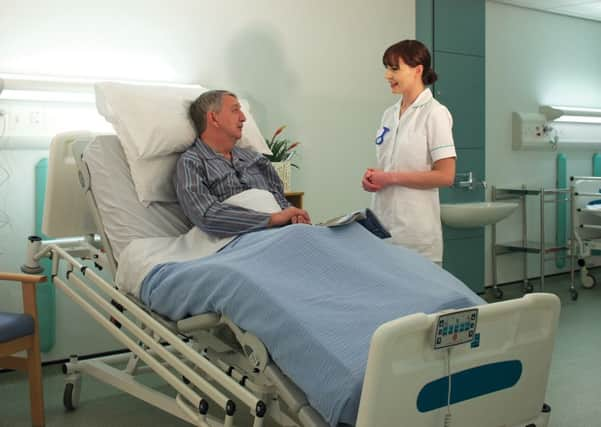Hospital trust explains why patients ready to leave are blocking beds


NHS England numbers for May, revealed patients at North Tees and Hartlepool NHS Foundation Trust who were fit to be released spent a total of 706 days waiting to be discharged or transferred to a different care facility – equivalent to nearly two years.
The figures showed that almost all of the delays – 99% – were caused by problems with the NHS and just 1% by problems with social care.
Advertisement
Hide AdAdvertisement
Hide AdA ‘delayed transfer of care’ occurs when a patient remains in a bed after being officially declared ready for transfer.
A spokesperson for the trust, which runs the university hospitals of Hartlepool and North Tees, in Stockton, said: “Delayed Transfers of Care for elderly patients is recognised nationally as a growing pressure.
“As such, we work very closely with our local authorities to ensure patients are discharged to the most appropriate place of residence as soon as possible once the patient is identified as ‘medically fit’.
“This includes collaborative working between hospital, community, primary and social care, supported by co-located social workers on the hospital sites. “The high percentage of delays assigned to the NHS includes; patients who are awaiting an appropriate care package to be put in place and residential or nursing home placements, also taking into account family choice of placement.”
Advertisement
Hide AdAdvertisement
Hide AdPatients must be safe to transfer and signed off by both a doctor and a multidisciplinary team, which could include social or mental heath care workers.
Independent healthcare charity the King’s Fund has said that the sign off process was sometimes lengthy and there could be many more people who were able to leave hospital but had not been officially declared as ready for transfer.
Delayed transfers of care have the greatest impact on elderly patients. According to the NHS, for a person over 80 a hospital stay of over 10 days can lead to 10 years of muscle ageing.
Across England, an average of nearly 4,500 beds a day were blocked in May, representing roughly 3.8% of all occupied beds.
Advertisement
Hide AdAdvertisement
Hide AdThe government target is 3.5%. It resulted in a total of 139,204 ‘delayed’ days, equivalent to just under 400 years of lost time.
The national rate peaked in February 2017 at a rate of 6,660 beds per day, but has decreased steadily over the past year.